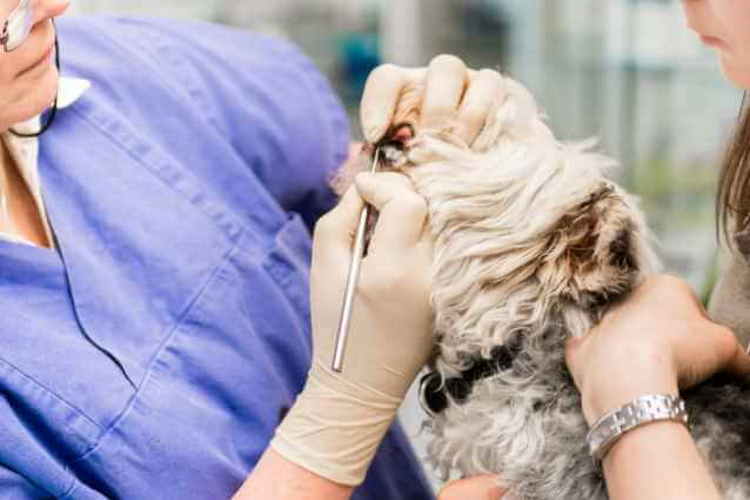- Home
- Shih Tzu Information
- Shih Tzu lifespan
Shih Tzu Lifespan: How Long Do Shih Tzu Live?
By Everything Shih Tzu, Updated November 5, 2022
This post may contain affiliate links. Read privacy & disclosure policy for info
When talking about Shih Tzu, the topic of how long these dogs typically live almost always come up at some point during the conversation.
While it's heartbreaking to think about the inevitable passing of our beloved pets, it is not at all unreasonable to wonder about it.
 Rufus
RufusHow long a Shih Tzu will live can range anywhere from 10 to 18 years, with an average lifespan of 13. However, genetics, environment, care, and diet can all have a significant impact on your dog's longevity.
Most Shih Tzu will live into their early teen years and are considered a senior dog between 9 and 10 years old.
Whether you’re thinking about getting a Shih Tzu or already sharing your life with one of these lovable companions, it’s only natural that you would want your best friend to be around for as long as possible.
The lifespan of your Shih Tzu can be affected by a number of factors, including genetics and the possibility of a sudden accident.
The good news is there are things you can do now that will help keep them healthy and happy for years to come.
Keep reading to learn more.
What Are Some of the Health Issues That Can Affect the Shih Tzu Life Span?
Overall, Shih Tzu are pretty healthy. This small breed enjoys one of the longest lifespans in the dog world.
Like many dogs, though, Shih Tzu do have certain health problems that are common to their breed.
It’s important to know about what these issues are so you can keep an eye out for any symptoms. The earlier you can detect a problem, the more likely that it can be fixed or treated quickly.
If left unchecked or gone unnoticed, these are conditions that can definitely shorten dogs’ lifespans, or at the very least reduce their quality of life.

Some common issues that Shih Tzu can have include heart issues, hip dysplasia, patellar luxation, collapsed trachea, breathing problems, and eye, ear, and teeth issues.
This might sound like a lot, but it’s important to remember that these are health problems that are common to many tiny dogs and doesn’t mean that all Shih Tzu will get these conditions.
Shih Tzu Joint Issues
Conditions like hip dysplasia, when the hip joint moves away from the thigh bone, and patellar luxation, when the kneecap pops in an out, are found in many dogs.
Shih Tzu puppies often think they can jump higher and harder than they actually can (sort of like a toddler), so these conditions can develop in their later years.
Depending on the severity, surgery may be needed.
Often the dog can still live a completely healthy life with just a limp and some joint pain, which can be helped with medicine, but sometimes these problems can lead to immobility.
Back Problems
Due to their build of short legs and a large back, Shih Tzu are prone to something called Intervertebral Disk Disease (IVD). This is where a disk slips out of place and presses against the spinal cord.
It can cause weakness, muscle spasms and in worst cases, paralysis. The symptoms can be treated with surgery and/or medicine.
Breathing problems
Sometimes Shih Tzu can be born with small passageways in their nostrils which makes it difficult for them to breathe.
If they are not able to get the proper amount of oxygen, their body can start to experience problems.
Another issue that faces small dogs is a collapsing trachea, where the windpipe can flatten from weak cartilage and make breathing difficult.
Owners should usually be able to notice breathing issues pretty quickly and get them addressed early.
So, if your dog is making snorting sounds a lot, don’t just assume he’s a snorer.
Eye Problems
Shih Tzu are prone to several eye problems, some of which can lead to blindness.
They also can get something called “proptosis,” a fancy way of saying the eyeball can come out of the socket (and will require an emergency visit to the Vet!)
Some of these issues can be fixed with surgery, but it’s expensive, so if you notice any changes in your dog’s vision, get them to a vet right away.
Earlier diagnosis often means a more successful solution.
Ear Issues
Although all dogs do not need their ears cleaned often, Shih Tzu ears need regular attention.
Ear infections are a common reason a Shih Tzu will have to visit the Vet.
Allergies, accumulation of ear wax, wet ears, or hair growing in the ear canals can be a breeding ground for bacteria in these long fluffy flaps when left unchecked for too long.
Cleaning their ears once a week will go a long way in keeping your dogs ears healthy.
Dental Problems
Because of their small mouths, Shih Tzu often have teeth that don’t line up or are missing altogether.
They’re also susceptible to periodontal disease (gum disease) which can have an effect on the animal’s overall health, causing “infections that can spread throughout the bloodstream to the kidneys, liver, heart or brain.”
This is why brushing their teeth is so important.
Common Issues Shih Tzu Face That Can Affect Their Longevity
When it comes to things that can affect your dog’s lifespan, health conditions aren’t the only thing to think about.
It’s important to know what traits your dogs breed possesses because certain activities, like jogging, might not be a good idea for them.
Shih Tzu, in general, are not very good swimmers, for example, so although they might enjoy a quick dip in the family pool with you, anything more than a few minutes is probably not a good idea.
It’s best to let them enjoy other activities that don’t involve having to constantly do the doggie paddle.
This breed also doesn’t tolerate heat very well, so they don’t make good outdoor pets, nor do they want to spend the day having fun in the sun.
If for some reason you need to have your Shih Tzu outside for an extended period of time, make sure they have plenty of shade and water.
Did you know...
Shih Tzu and other short faced dogs can overheat more easily than dogs with a longer snout. Heat exhaustion and heat stroke can develop quickly and become life threatening conditions for them.
Some dogs in this breed can also easily become overweight.
Carrying around excess weight can cause other problems, especially joint and back issues, or make conditions that are already present worse.
What You Can Do to Help Your Shih Tzu Live a Long and Happy Life
The oldest Shih Tzu on record was named Smokey, in St. Petersburg, Florida.
Smokey lived to be 23 years old! Wow!
Dogs rarely live to the age of 23, but there are a few things you can do to increase the likelihood that your Shih Tzu will live to the age of 16 or beyond.
Understanding the breed's common health issues and potential behavioral problems is a good first step but here's a few more tips.
- When walking your Shih Tzu, you may want to consider using a harness rather than a collar. This could help to prevent the collapsed trachea problem, or at the very least, it may keep it from becoming worse in the future.
- It goes without saying that bringing your dog in for a veterinarian checkup at least once a year could help them stay in tip-top health. Additionally, if you notice anything that is out of the ordinary with your four-legged friend, you should contact the vet as soon as possible.
- Keep up to date on any necessary vaccinations and regularly cleaning your dog's eyes and ears to stay ahead of any possible problems.
- A balanced diet and an active lifestyle are fundamental components of a healthy lifestyle for people as well as for dogs.
- Avoid overfeeding your dog, cut back on the treats, and let him or her get some exercise every day. Fortunately, this little pup doesn't require much of it. Taking daily strolls of a moderate length and some one-on-one playtimes are usually sufficient. (We should all be so lucky!)
 Professional canine dental cleaning
Professional canine dental cleaning- Brush your dog's teeth regularly. The same holds true for dogs as it does for people when it comes to the significance of routine dental care to overall health. Be sure to schedule an annual appointment for your four-legged friend to have a dental checkup and cleaning so that he can maintain good dental health.
- According to the American Kennel Club, "there may be long term health benefits to spaying or neutering dogs after they have passed through puberty." If you have a Shih Tzu puppy that is not already spayed or neutered, make it a priority to discuss with your veterinarian the best time to get it done.
- Regular grooming can also affect your dog’s health, believe it or not, not to mention it just makes them feel better.
Think about it, how would you feel if you never got a haircut or a bath?
It’s especially important to keep hair out of Shih Tzu’s eyes by trimming them or using a top knot, since their eyes protrude and can easily get scratched and infected.
When you get a new Shih Tzu, make sure to check it’s history.
Proper breeding can help reduce the chances of a lot of health issues since breeder's screen for these conditions.
If you’re a dog lover, then your canine companion is more than a pet, she’s part of the family.
And if your Shih Tzu has made her way into your heart, then, of course, you want to do everything you can to make sure she’ll live a long and healthy life.
Knowing what to look for and how to take care of your dog will help her enjoy her days with you, whether it be the average of 13 years or more.
Maybe your Shih Tzu will set a new record and pass up Smokey’s 23-year lifespan!
- Home
- Shih Tzu Information
- Shih Tzu lifespan



